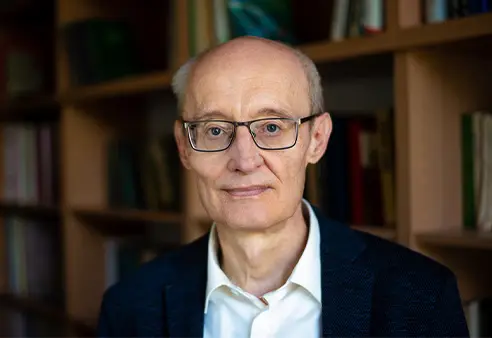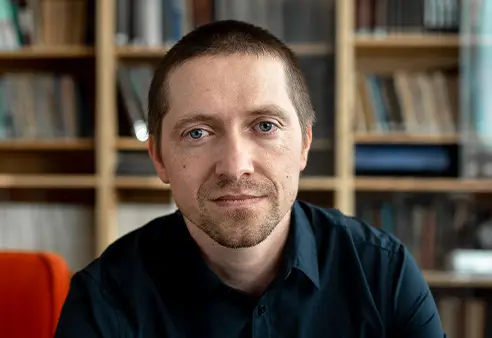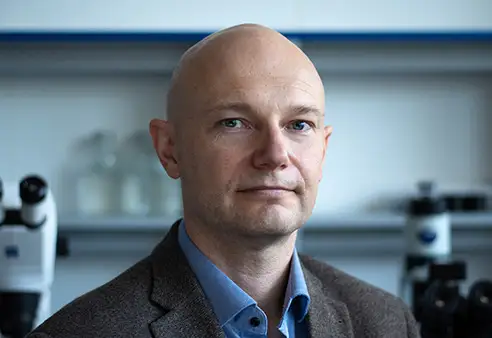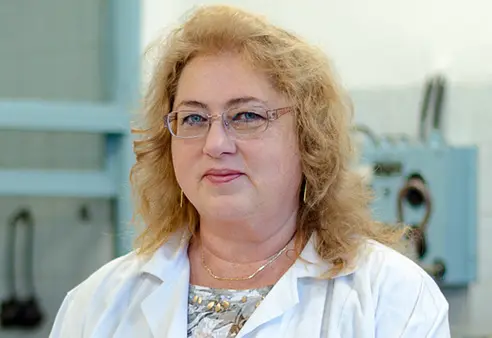Professor Dr.rer.nat. Fedor Šimkovic, CSc. works at the Department of Nuclear Physics and Biophysics, Faculty of Mathematics, Physics and Informatics, Comenius University in Bratislava, where he leads a team of young scientists and doctoral students. As part of his scientific work, he focuses on neutrinos, which are among the most widespread elementary particles in the universe. They arise in nuclear reactions inside the Sun (in the stars), in the collisions of cosmic rays with our atmosphere, in the decay of heavy nuclei inside the Earth, but also in the human body.
In his research, he uses atomic nuclei as a laboratory to study the fundamental properties of neutrinos. His activities cover the fields of atomic physics, nuclear physics and particle physics, with an expansion into astrophysics. These areas of research are interconnected by a unique process of neutron-free double beta decay of nuclei (0νßß), which has not yet been observed and is of great interest to the scientific community. "My goal is a comprehensive theoretical description of this process in connection with the issue of the Grand Unified Theory, the structure of nuclei and atoms," says Fedor Šimkovic.
The scientific team of Fedor Šimkovic also takes part in experiments representing top research in neutrino physics. They contribute to the formation of their physical program, and create the necessary software for data processing and interpretation. These renowned neutrino experiments, NEMO3 / SuperNEMO (0νßß-process), Baikal-GVD (space neutrino telescope) and JUNO (neutrino oscillation research), have enormous scientific potential.
Fedor Šimkovic's portfolio also includes a number of international collaborations. He made most of his contacts with scientists during his studies at Karls-Eberhard University in Tübingen. Cooperation with the International Institute in Dubne and the Institute of Technical and Experimental Physics of the Czech Technical University in Prague are very valuable for him. "I am proud of every published article with my colleagues from abroad, as it moves me forward. Behind each of them is a number of open and interesting scientific discussions. In this sense, I must mention my colleagues from CALTECH, the University of Ioannina, the University of Valparaiso, the University College London, the ITEP Institute in Moscow, as well as many others."
For the last 7 years, he has been one of the main organisers of the Bruno Pontecorv International Summer School of Neutrino Physics, where renowned scientists give lectures.
According to Fedor Šimkovic, Slovak scientists should cooperate more with international institutions that have access to important scientific infrastructures and technologies. "I think that Slovak science is too introverted. We are a small community and we lack greater international connectivity and response. Opening up to the international community could bring more success to the science in Slovakia. I hold the belief that there is a need to create positions for young professors and open them up for the applicants from all over the world. Strong competition will only help us."
In his free time, Fedor Šimkovic enjoys spending holidays on the island of Hvar in Croatia, and participates in social and sports events organized by friends. He engages in numerous sports, such as, swimming, tennis, cycling and chess. Together with his wife and children, he likes to go to the opera at SND (The Slovak National Theatre) in Bratislava.



